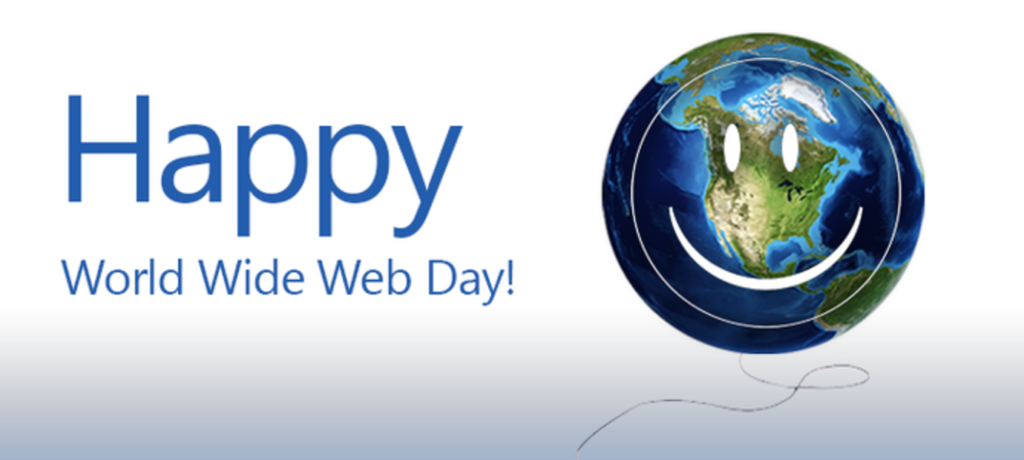Intelice Solutions: Blog

Everything You Need To Know About World Wide Web Day
World Wide Web day is a chance to celebrate the way the Internet has created an environment for collaboration and business growth.

How often do you start your days by signing into your email account, scanning your social media accounts, or reading the latest headlines? For over two decades people across the world have enjoyed the Internet and all that it has to offer. From staying connected, to increase revenue streams, to helping businesses grow, World Wide Web Day is a global celebration dedicated to web browsing, the online activity that brings a wealth of knowledge to your fingertips.
A Look Into The Origins Of World Wide Web Day
CERN scientist Tim Berners-Lee wrote a proposal in March 1989 regarding the future development of a distributed system for the laboratory and scientists across the globe. By December 1990 the world’s first server and website were on the precipice of going live at CERN. From its birth to initial inception, the World Wide Web was designed as the system to inspire communication via hyperlinks. Today, the web has exponentially grown to allow people from all over the world to communicate, share knowledge, learn, connect, and grow. In many ways it has become the catalyst for change within our society as doors that would have been previously unimaginable are being opened.
A Brief History Of The Internet
The invention of the internet is attributed to Tim Berners-Lee, a British scientist who in 1989 first conceived of the idea at CERN in Geneva, Switzerland. The idea grew out of a necessity for nearly instantaneous and automatic knowledge-based sharing between scientists across the globe. Until the birth of the World Wide Web, a scientists ability to share information quickly and accurately was minimal at best; needless to say, if progress was to continue to develop at a rapid pace, then a better, more innovative communication platform needed to be developed.
The world’s first website was hosted on Berners-Lee’s NeXT computer and was dedicated to the World Wide Web project. The site described the features of the web; how to set up your own personal server; and how to access other people’s shared documents. As time progressed and the popularity of the World Wide Web sky rocketed, the need for larger and faster servers quickly arose; however, the original NeXT machine can still be found at the CERN laboratory.
By April 30, 1993 CERN had decided to make the World Wide Web software a public domain. Over the next months CERN issued a release that was made available with an open license to further spread the use of the World Wide Web to those outside of the scientific community. Through these steps, CERN ensured that the use of the World Wide Web would continue; its growth would flourish; and people from all walks of life would be able to enjoy the mass amount of knowledge that would soon be stored, displayed, shared, and published. By making the software needed to run a web server freely available, CERN also helped to create the platform needed for future open source software development ventures, which have resulted in some of the greatest digital technological advancements of our time.
How Can You Celebrate World Wide Web Day?
In 2013, CERN decided that it wanted to raise additional awareness regarding the initial origins of the World Wide Web project. As part of this initiative, CERN reinstated the world’s first website, going so far as to use the site’s original address. Today, we can celebrate World Wide Web Day on August 1, 2017 in a multitude of fashions. We can celebrate by logging into our email accounts, posting on social media platforms, debating in online forums, posting a blog, streaming live music, backing up our data servers, reading blog posts (such as this one), or completing any of the myriad of actions that the World Wide Web has placed at the tips of our fingers. No matter what actions you choose to take remember to honor the original mission of the World Wide Web by creating, sharing, and publishing valuable information that can be enjoyed by people throughout the world. Partake in World Wide Web day and discover how emerging technologies can benefit your business when you contact {company} located in {city} via {email} or {phone}.




